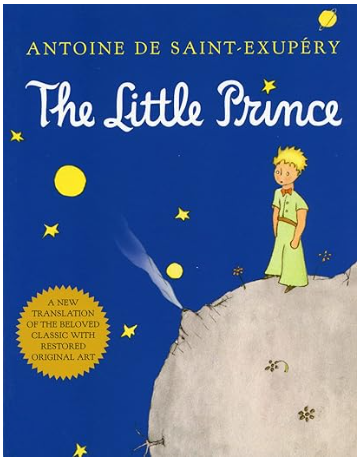The Little Prince written by Antoine de Saint-Exupéry

3 most impressive sentences in this book
1. The judgment of oneself is far more difficult than the judgment of others.
My reflection:
It is easier to judge other people than to judge oneself, and most of the time, individuals are not aware of this tendency. Many people find it easy to notice when someone else makes a mistake, whether at home or in the workplace, but they probably won’t be as sensitive when they make similar mistakes themselves. This human nature can lead to conflicts in any type of relationship if individuals lack the practice of self-reflection. Without regular self-reflection, they are likely to be influenced by other people’s judgements and tend to judge others the same way.
However, when you regularly reflect on your own thoughts and behaviours, you may find others’ behaviours or mistakes more acceptable, as you are likely to have committed similar actions under certain circumstances. During self-reflection, it can feel awkward when you realise you have made mistakes or not treated others fairly, which may make people reluctant to practise self-reflection but quick to judge other people as they used to do.
For me, I am aware that judging others is a human tendency, but I spend less energy and time doing so since I started practising self-reflection. Realising that the only thing I can control is myself, including my thoughts and behaviours, I choose to let go and not judge others when I find myself at odds with them.

2. “Why do you drink?” “To forget the shame of my drinking!”
My reflection:
Drinking to forget the shame of one’s drinking might sound like nonsense. It makes more sense for people to drink to ignore negative emotions. Consuming a moderate amount of alcohol is reasonable at social events, but many individuals exceed their limits and become alcoholics. Three years ago, I met a client, approximately 60 years old, who had suffered from excessive alcohol consumption, leading to deteriorated brain function. It was essential for me and other volunteers to visit him at least once every 2 days to monitor his sobriety and prevent him from overspending his government-sponsored money on alcohol.
The client’s family refused to visit or communicate with him due to his alcoholism. He couldn’t refrain from drinking daily to cope with loneliness and abandonment. His drinking behaviour mirrors someone who drinks to forget the shame of their drinking problem. Clearly, alcohol is not the best way to deal with negative emotions, as excessive consumption can harm brain function.
When coping with negative emotions, there are better alternatives than drinking alone. Regularly connecting with family, friends or trusted individuals to share your life experience is beneficial. They can help identify emotional fluctuations and potential risks of developing alcoholism. In the absence of social support, cultivating interests such as music or painting, or engaging in simple daily activities like walking in the park and enjoying sunlight, can bring happiness and shift focus away from drinking. This approach may help individuals with negative emotions and the risk of alcoholism concentrate on activities other than drinking.

3. I once believed I was very rich, owning a unique flower, when in reality it was just an ordinary rose.
My reflection:
Our initial perceptions or beliefs about something can be very different from the actual truth, and this can apply to many situations. For example, many individuals are keen on making as much money as possible before retirement so they can enjoy their later years without financial worries and do whatever they want. However, many of them don’t truly know how much money they really need for retirement and never reflect on their current annual expenses for essential items. They also often lack a plan for retirement activities. Instead, they continue to focus solely on accumulating an ever-elusive sum for retirement may be frugal with expenses such as family holidays. They may meticulously budget and save every penny in pursuit of more wealth accumulation. However, this cycle of chasing wealth may never end.
One of my family members has spent nearly her entire working life since graduation accumulating money without truly understanding how much she needs, likely due to growing up in poverty. She has continued this pursuit even as she nears retirement age of 65. From my observations, I don’t think she will struggle to maintain her quality of life with her current wealth, but out of respect for boundaries, I refrain from suggesting anything. Her wealth probably already far exceeds the amount she actually needs for retirement, yet she is unlikely to ever feel it’s enough. This situation illustrates how people’s perceptions can diverge from factual reality.

Other impressive sentences
It is the time you have spent on your rose that makes your rose so important.
“This pill can save a lot of time. Experts have calculated it saves 53 minutes every week.” “What would you do with those 53 minutes saved?” “If I had 53 minutes, I would leisurely stroll towards the fountain.”

For a long time, your only solace was the melancholy beauty of sunsets. When people are sad, they often enjoy watching sunsets…
“You must come at the same time every day. For instance, if you come at four in the afternoon, from three o’clock onwards I shall begin to be happy. The closer it gets to four, the happier I’ll feel. By four o’clock, I’ll be agitated and excited; I will have discovered the cost of happiness! But if you come at any time, I won’t know when to prepare my heart… One must have rituals.”
Only with the heart can one see clearly. The truly important things are invisible to the eyes.
